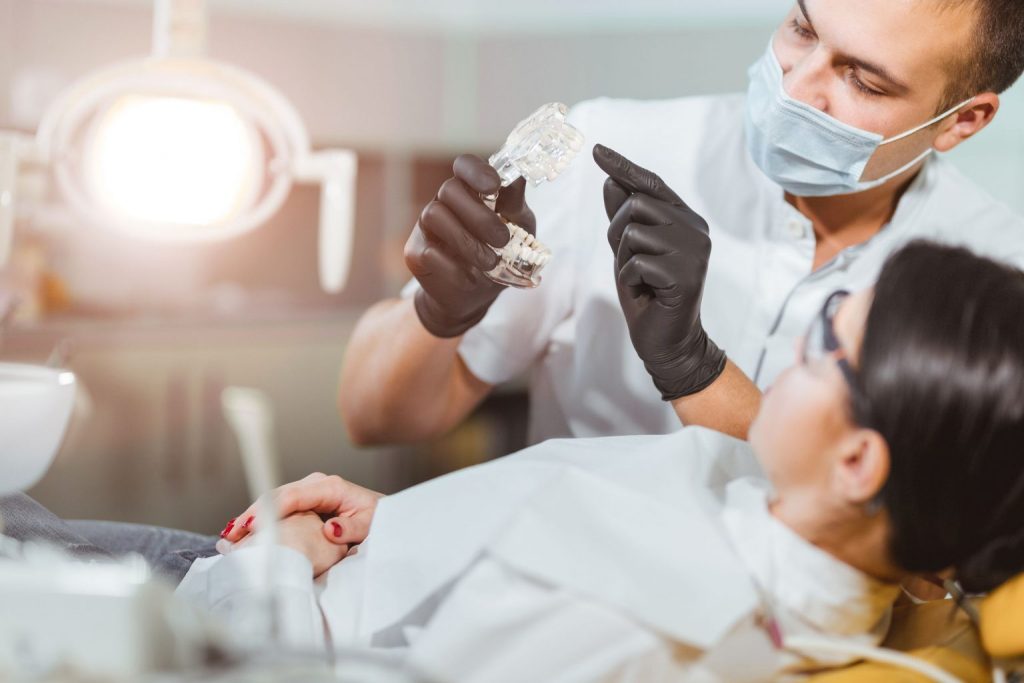Why Is Teeth Flossing Important?

- Y Block, 267-Y Street 11, Commercial Sector Y DHA Phase 3, Lahore, Punjab 54000
- Mon-Sat 12:00 PM – 10:00 PM
Flossing is often overlooked in daily oral hygiene routines, yet it plays a crucial role in maintaining healthy teeth and gums. While brushing cleans the surface of your teeth, flossing reaches the tight spaces between them, removing plaque and food particles that a toothbrush can’t. But why exactly is flossing so important? Let’s explore its benefits, proper techniques, and how it can prevent oral diseases.
1. Removes Plaque and Prevents Cavities
Plaque is a sticky film of bacteria that forms on teeth after eating. If not removed, it hardens into tartar, leading to cavities and gum disease. Flossing daily helps remove plaque before it causes damage.
2. Prevents Gum Disease (Gingivitis & Periodontitis)
When plaque builds up along the gumline, it can cause inflammation (gingivitis), leading to redness and bleeding gums. If left untreated, it progresses to periodontitis, a severe infection that can cause tooth loss. Flossing prevents this by keeping gums clean and healthy.
3. Reduces Bad Breath
Food particles stuck between teeth can lead to bad breath as bacteria break them down. Regular flossing removes these particles, ensuring fresher breath.
4. Improves Overall Health
Poor oral hygiene is linked to serious health conditions like heart disease and diabetes. Bacteria from the mouth can enter the bloodstream, causing inflammation in other parts of the body. Flossing reduces the risk of such complications.
5. Enhances the Effectiveness of Brushing
Brushing alone can’t remove debris between teeth. Flossing clears these areas, allowing toothpaste to reach deeper, making brushing more effective.
How to Floss Properly
To get the best results, follow these simple steps:
- Use Enough Floss: Take about 18 inches of floss and wrap it around your fingers.
- Gently Glide Between Teeth: Avoid snapping; move it up and down against each tooth.
- Curve Around the Tooth: Form a “C” shape to reach below the gumline.
- Use a Fresh Section for Each Tooth: This prevents spreading bacteria.
Types of Floss: Which One Is Best?
- Waxed Floss: Slides easily between tight teeth.
- Unwaxed Floss: Thinner but may shred in tight spaces.
- Dental Tape: Wider and softer, great for sensitive gums.
- Water Flossers: Ideal for people with braces or difficulty using traditional floss.
How Often Should You Floss?
Dentists recommend flossing at least once a day, preferably before bedtime, to remove food particles and bacteria accumulated throughout the day.
Conclusion
Flossing is not just an extra step in oral care—it’s essential for preventing cavities, gum disease, and bad breath. By making flossing a daily habit, you’re investing in long-term dental health and overall well-being.
Make flossing a priority today for a healthier smile tomorrow!
Need a professional tooth cleaning? You can always come to Dr. Imran’s Multispeciality Dental Care for any dental treatment. Our talented staff makes sure that you leave the clinic with a confident smile.
Get Social
Recent Post
-
Top 7 Services Offered by Dental Care Clinic
-
 How Much Can You Save with Dental Tourism in Pakistan?
How Much Can You Save with Dental Tourism in Pakistan? -
 Discover Affordable Dental Tourism Packages in Pakistan
Discover Affordable Dental Tourism Packages in Pakistan -
 Plan Your Dental Tourism Trip to Pakistan
Plan Your Dental Tourism Trip to Pakistan -
 Dr. Imran’s Multispeciality Dental Care – Best Dentist in Lahore
Dr. Imran’s Multispeciality Dental Care – Best Dentist in Lahore -
 Dr Imran's Multispeciality Dental Care – 14% Off Until 31 August 2025 + Free Pakistan Flag Gift
Dr Imran's Multispeciality Dental Care – 14% Off Until 31 August 2025 + Free Pakistan Flag Gift -
 What Makes a Dental Clinic the Best Choice for You?
What Makes a Dental Clinic the Best Choice for You? -
 Top 7 Reasons Why Regular Dental Checkups Are Important – Dr. Imran Dental Care
Top 7 Reasons Why Regular Dental Checkups Are Important – Dr. Imran Dental Care
